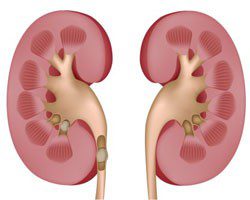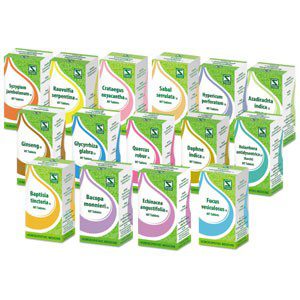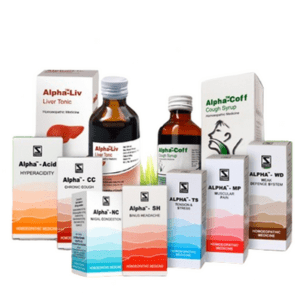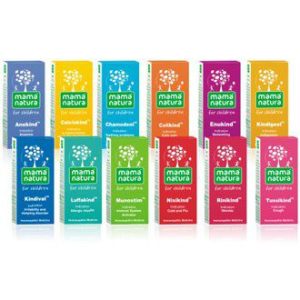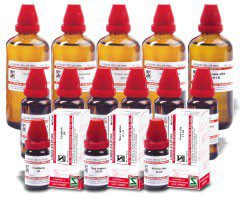Doctors Zone
Journal (JEBH)
Alpha™- Liv Drops
Alpha – Liv Drops Due to high demand from the market, for a formulation in drops for the liver, apart from the syrup already available in the market, Schwabe India developed this product. Introduction The liver plays a key role in metabolism. It has anabolic and catabolic, exocrine and endocrine functions. The liver is a blood reservoir, filter and store of different substances (e.g. glycogen, vitamins). It is the site of serum protein (e.g. albumin, prothrombin, fibrinogen) and enzyme synthesis. Metabolic processes (e.g. bilirubin, hormone, carbohydrate and lipid turnover) and the removal of toxic products are important liver functions. 1 Hepatotoxins (e.g. alcohol, tetracycline, acetaminophen, fungal toxins, and anabolic steroids) can cause specific damage to liver cells. Toxic hepatitis may be clinically silent or severe enough to lead to the rapid development of hepatic failure. Clinical features include hepatomegaly, enzyme abnormalities, fever, abdominal pain, anorexia, nausea, vomiting and weight loss. In patients with underlying cirrhosis, manifestations of portal hypertension may predominate. Aversion to fatty food, abdominal discomfort, nausea and vomiting after meals may be symptoms of 2 cholelithiasis. Jaundice results from accumulation of bilirubin. It has non-hepatic as well as hepatic causes. Hyperbilirubinaemia may be due to abnormalities in the 3 formation, transport, metabolism or excretion of bilirubin. TM Alpha -Liv Drops aids recovery and normalisation of liver functions. Severe liver disease needs specialised treatment. Indications: Slow liver functions, fatty liver, and for supportive treatment of hepatocellular jaundice and toxic liver damage.

Schwabe News | Issue 7-9 | July – Sept 2016 | Product watch- Tussistin plus
Tussistin plus
Introduction
Cough is a reflex to keep the throat and airways clear. However, excessive coughing may mean underlying disease or disorder. Cough can be either acute or chronic. Acute cough begins suddenly and usually last no more than 2 to 3 weeks. Acute cough is most often associated with cold or flu. Cough may be dry, loose and spasmodic. Dry cough is due to affections of the throat, laryngitis and bronchitis. Sometimes it could be of nervous origin. Loose cough is seen in the expectoration stage of bronchitis. Spasmodic cough can be due to allergic disorders or seen in whooping cough. Tussistin Plus Cough Syrup is formulated to cover different types of coughs. The homoeopathic remedies included in the product are proven for its effectiveness in the treatment of cough and pain due to cough. These help liquefaction of tenacious bronchial secretions, promoting expectoration and lowering of fever.
Clinical observation of Tussistin Plus
Tussistin Plus is successful for many years for cough where the acute narcotic effect of an antitussive-agent is not desired. Corresponding experiments exist in favour of Tussistin Plus. It combines all the other qualities which are required for an antitussive and expectorant with free of side effect. Particularly, this product has proved itself in the bronchitis associated with influenza and cold. It is especially suited in the infants and children.
Indications: Spasmodic cough, pain due to cough, acute and chronic bronchitis, fever and as an expectorant
 Composition:
Composition:
Each 100ml contains:
Antimonium sulphuratum aureum 5x 0.5ml
Bryonia alba 2x 0.5ml
Drosera rotundifolia 2x 0.5ml
Eucalyptus globulus 2x 0.5ml
Ipecacuanha 3x 0.5ml
Excipients Q.S. to make 100ml
Alcohol content 3%v/v
Proven indications of the individual ingredients in the sphere of claimed action:
Antimonium sulphuratum aureum: It is useful for dry hard cough, winter cough, accumulation of tough mucus in bronchi and larynx, increased mucus sputum, mixed with blood and of sweetish taste, and congestion of upper lobe of the lung.
Bryonia alba: It acts on pharyngolaryngitis and dry bronchitis. It covers cough mostly dry, excited by a tickling in the throat, must sit up; stitches in chest and expectoration of rust – coloured sputa sometimes with vomiting; worse after eating or drinking. It also covers difficult, quick respiration, worse every movement, must support chest.
Drosera rotundifolia: It covers dry but spasmodic irritative cough, tickling in larynx on lying, sensation as if there is a soft body, such as feather in the larynx with dryness or roughness and scraping in the bottom of the gullet, with inclination to cough; hoarseness; cough worse at night and in evening, immediately after lying down and whooping cough worse after midnight. Indicated for bronchitis, bronchial asthma and whooping cough.
Eucalyptus globulus: It is used in cases of bronchitis in old and feeble persons with anaemia. Indicated for bronchorrhoea, irritative cough with thick, white, frothy, offensive mucus; whooping cough in rachitic children and bronchitis and emphysema.
Ipecacuanha: It is indicated in bronchitis, spasmodic cough, dry, shaking with fits of suffocation, stiffness of the body and bluish face. It is excited by a contractive tickling sensation extending from upper part of larynx to lowest part of bronchial tubes. The symptoms aggravate on walking in cold air, on retiring, in morning and at night and on taking a deep breath, cough with retching and vomiting without nausea & rattling noise in the bronchial tubes when drawing breath.
Dosage: Unless otherwise prescribed, 1-2 teaspoon 2-3 times daily. ½ teaspoon every 1-3 hours during heavy cough. Children should be given half of the adult dose.
Side effects: No side effects of Tussistin Plus Cough Syrup are known.
Contraindications: No contra-indications for the use of Tussistin Plus Cough Syrup are known.
Interactions: No interactions between Tussistin Plus Cough Syrup and other products are known.
Presentation: Bottle of 100ml
Recent Advancements in Basic Homeopathic Research – A Report on Two Significant Publication
In a study conducted at the Experimental Farm of the State University of Santa Catarina, Brazil, researchers investigated the impact of homeopathic treatments on piglets during the nursery phase. The study aimed to determine whether homeopathic agents could reduce fighting behavior, improve growth performance, and affect hematological, metabolic, and oxidative variables. The study included 108 weaned piglets divided into four groups: a negative control group receiving only the basal diet, and three groups receiving different homeopathic treatments at varying dosages.
Journal of Evidence Based Homeopathy Volume: 1, Issue: 1, January - June 2023
Comprehensive articles

Agrohomeopathy – A Review
Short cases

Unmasking the Intricacies: A Pyogenic Abscess Case Report

Lichen Simplex: A Singular Case Study

Ranula Unveiled: A Case Report and Management Approach

Lichen Simplex: A Singular Case Study

A Puzzling Presentation: A Case Report of Jaundice
Recent provings and updated materia medica

Acidum Formicum

Mygale

Thea Chinensis
Materia medica on phytohomeopathy

Chrysarobinum

Sanguinarinum nitricum

Thiosinaminum
Mother tincture

Asparagus Officinalis

Ginkgo Biloba

Rosmarinus Officinalis
Product watch

Alpha™- Liv Drops

Good Morning™ Constipation Drops

Zauber™ Hair Drops
Research News











